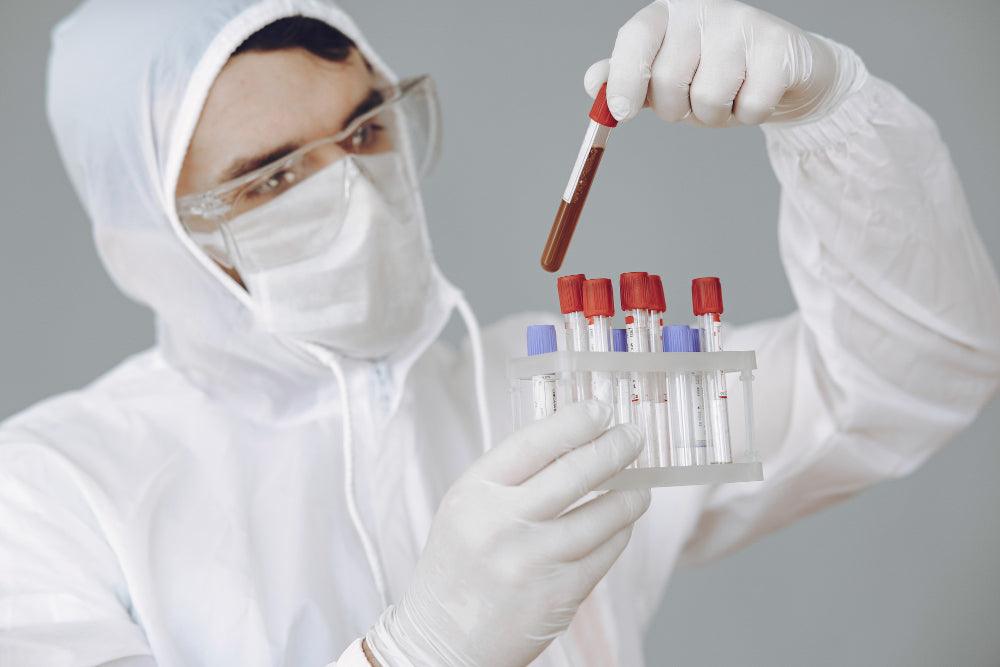
 Instagram
Instagram
Related products

Related products
What’s covered?
Normal testosterone levels are important for your overall health.

Testosterone is a steroid hormone produced by the testes in men and ovaries in women. Its production is controlled by the pituitary gland. Its small amounts are also produced by adrenal glands in both genders. Testosterone levels rise with the onset of puberty and start a steady decline as a person enters middle age.
Why are T levels important?
The hormone has enormous functions in the body, which are mostly related to reproduction. That's why it is dubbed as ''male sex hormone''. Some important functions are;
- It has a role in the sex drive and sperm production,
- It influences muscle mass and fat distribution in the body,
- It is important for bone health,
- It influences the production of blood cells, particularly red blood cells,
- It influences sexual behaviour, aggression and mood.
A falling testosterone level thus not only compromises your reproduction but also affects overall physiology.
What are the normal T levels in both genders?
The T-test measures the levels of testosterone in the body. Testosterone can be bound to blood proteins (sex hormone binding globulin), or it travels freely in the body. So, the tests measure both total testosterone and free testosterone. The lab technician will take a few ml of blood from your veins for this blood test and will give results in nanograms per decilitre (ng/ dl). If all other factors remain the same, their levels vary with the person's age. The normal expected levels of total testosterone are;
Men
7-10 years: 1.8-5.68 ng/dl
13-17 years: 208.08-496.58 ng/dl
19 years and above: 300-1200 ng/dl
Women
7-10 years: 2.69-10.29 ng/dl
13-17 years: 16.72-31.55 ng/dl
19 years and above: 20-75 ng/dl
These reference values vary from source to source and should be interpreted by a qualified endocrinologist who will make a decision on testosterone therapy based on your:
- Puberty and development,
- Size and condition of testes,
- Your marital life,
- The waist size and body mass index,
- The use of medications, e.g., anabolic steroids and opiates,
- Presence of pattern baldness.
In females, the following factors influence the interpretation of results;
- Muscle mass,
- Abnormal hairs on the face or body,
- Acne and other skin problems,
- Menstruation status and issues like polycystic ovary syndrome (PCOS).
The consequences of low testosterone
The testosterone deficiency doesn't go unnoticed. Lower T levels can jeopardise all of its functions resulting in thinner and weak bones, lack of maleness and sexual function, depression, weight gain, lethargy, and low sexual desire. Can you live with these issues? If not, you need to determine testosterone levels regularly.
Take home message
Testosterone has important functions in the body, and its levels should be monitored regularly. In case of any deficiency symptoms, undergo the test to measure the total testosterone in the blood and consult the endocrinologist about the treatment options, e.g., testosterone replacement therapy to raise testosterone levels.
Welzo offers a range of testosterone tests,
Our Free Testosterone Test can detect many aspects of testosterone health including:
- Testosterone
- Free Testosterone Calc
- SHGB
- Albumin
The Testosterone Test will measure only the testosterone levels in the blood.
































 Rated Excellent by 26,523+ Reviews
Rated Excellent by 26,523+ Reviews